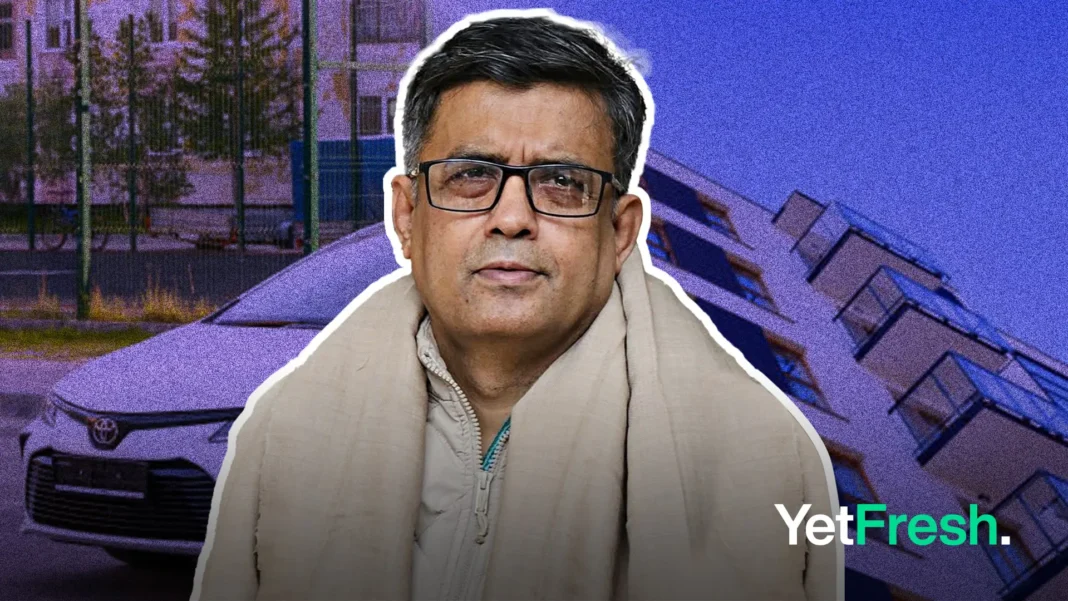Summary:
- Shafiqul Alam, Press Secretary to Bangladesh’s Chief Adviser, publicly disclosed his personal assets on Facebook to promote transparency.
- His assets include inherited and purchased properties in Dhaka and Mymensingh, agricultural land, and savings of BDT 11.4 million.
- Alam cited security concerns and public hostility as reasons for potentially relocating to a government-provided residence.
- The disclosure aligns with the interim government’s push for mandatory asset declarations to ensure accountability among officials.
In a bold act of transparency, Shafiqul Alam, the Press Secretary to Bangladesh’s Chief Adviser Muhammad Yunus, has publicly disclosed his personal assets on social media. This comes amidst the interim government’s push for greater accountability and transparency among public officials. Alam’s detailed Facebook post, published late Thursday night on January 16, 2025, outlines his financial holdings and properties, setting a unique precedent for government officials in the country.
The disclosure follows the interim government’s mandate requiring all government employees to submit asset declarations. The deadline for these submissions was recently extended to February 15, 2025, as part of an initiative aimed at combating corruption and restoring public trust in state institutions.
In his post, Alam provided a comprehensive account of his assets. He revealed ownership of a 1,150-square-foot apartment in Dhaka’s Dania area, inherited from his father who built the property two decades ago. Despite moving out in 2010, he retains ownership of the flat and expressed an emotional connection to the property, recalling memories of his late parents. Additionally, Alam disclosed purchasing a 1,100-square-foot flat in Shahinbagh in 2014 with financial assistance from family members and personal savings. However, citing security concerns and recent incidents of public hostility, he indicated that he might soon relocate to a government-provided residence.
Alam also mentioned acquiring another flat in Mymensingh five years ago at a low cost from a relative, alongside a flat owned by his wife in the same building. These properties currently serve as sources of rental income. Furthermore, he owns 40 decimals of agricultural land in his ancestral village but expressed doubts about retiring there as previously envisioned.
Financially, Alam reported having one bank account with savings totaling BDT 11.4 million (approximately $114,000), primarily accumulated during his two-decade career at Agence France-Presse (AFP). He noted that a portion of this amount is tied to loans given to acquaintances. Additionally, he owns a car and highlighted the high costs associated with maintaining it in Dhaka.
Reflecting on his new role as Press Secretary, Alam acknowledged the challenges ahead but expressed confidence in living a modest middle-class lifestyle even after completing his tenure. “Power often attracts false allegations about one’s earnings,” he wrote. “This is my complete asset disclosure.”
This public declaration aligns with the interim government’s broader efforts to institutionalize asset disclosures among government officials. Since assuming office on August 8, 2024, Chief Adviser Muhammad Yunus has emphasized transparency as a cornerstone of governance reform. The administration has pledged to make asset declarations mandatory for all public servants and their spouses while developing mechanisms to enforce compliance.
The move has been widely praised as a step toward curbing corruption and fostering accountability within Bangladesh’s public sector. Historically, asset declaration rules have been inconsistently enforced, allowing unchecked corruption to flourish. Recent scandals involving high-ranking officials have underscored the need for stricter oversight.
Shafiqul Alam’s decision to voluntarily disclose his assets publicly has set an example for others in government service. His candid account not only underscores the importance of transparency but also humanizes the challenges faced by public officials navigating both professional and personal responsibilities under intense scrutiny.
As Bangladesh continues its journey toward greater accountability and governance reforms, such acts of openness may serve as milestones in rebuilding public trust and ensuring ethical conduct across all levels of government.
Source: Jugantor




